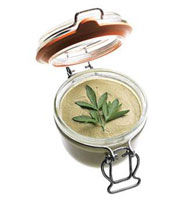
A 2013 paper published in Yale Journal of Biology and Medicine and titled “Nutritional interventions in depression and perinatal depression” states the following:
In pregnancy three “different physiological causes of depression have been identified: low serotonin, dopamine, and norepinephrine levels in the brain; altered neuromembranes and the impact of polyunsaturated fatty acids on these membranes; and hormones, especially hormonal changes that occur during and after pregnancy. Each of these pathways is affected by specific nutrients and may be altered by nutritional approaches.”
The paper lists the following possible nutritional deficiencies to consider:
- Folate, vitamin B12 and vitamin B6 – which help maintain sufficient levels of neurotransmitters in the brain . These B vitamins are critical factors in homocysteine metabolism and homocysteine is a necessary precursor in the biosynthesis of serotonin, dopamine, and norepinephrine.
- omega-3 fatty acids (EPA and DHA) – which keep neuronal membranes fluid and thereby enhance neurotransmitter production
- SAMe – which has an antidepressant effect
The authors also discuss the importance of addressing possible imbalances of sex hormones, cortisol and thyroid hormones.
The paper concludes with this:
“Nutritional interventions may be a cost effective way of preventing and treating depression in pregnancy. When used prophylactically, nutritional interventions may decrease the incidence or severity of perinatal depression. When used as treatment methods, nutritional interventions may reduce the utilization of or the necessary dose of psychotropic drugs. Decreasing the amount of psychotropic drugs used during pregnancy may reduce the risk of harm to the fetus, while still providing the mother with an equivalent amount of therapy.”
In addition to the above, there is also research on: tryptophan, melatonin, zinc, and the role of inflammation in postpartum depression and anxiety.
It should be noted that by addressing many of these factors, both depression and anxiety may be alleviated. Also, since each person has their own unique biochemistry, it’s important to figure out what factor plays a role for that person.
I recently had the opportunity to share and more when I exhibited at the “California Maternal Wellness Summit: Postpartum Depression and Beyond.”
I met some wonderful women and groups who are doing amazing things to support women who have postpartum anxiety and depression. The response to my book, The Antianxiety Food Solution, and all the research on the powerful food mood connection was wonderful!
Because I feel this topic is so important, I’ve interviewed Christa Orrechio for “The Anxiety Summit.” The topic of her interview is: “Preventing and Quelling Post-Partum Anxiety.”
“The Anxiety Summit” is a free online virtual event that runs June 9 to June 22 and will be bringing together experts from all over the world – to share nutritional approaches to end anxiety, social anxiety, panic attacks and OCD. You can register for “The Anxiety Summit” here.
UPDATE: the summit concluded on Tues 6/24 – season 2 of The Anxiety Summit will be in November 2014. If you’d like to be on the notification list just sign up here www.theAnxietySummit.com
